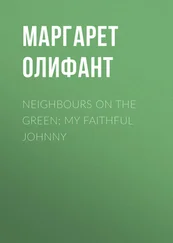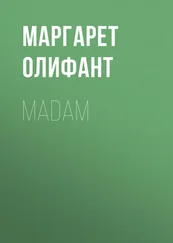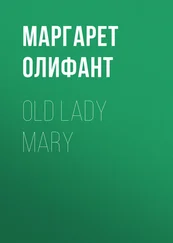Маргарет Олифант - Sir Robert's Fortune
Здесь есть возможность читать онлайн «Маргарет Олифант - Sir Robert's Fortune» — ознакомительный отрывок электронной книги совершенно бесплатно, а после прочтения отрывка купить полную версию. В некоторых случаях можно слушать аудио, скачать через торрент в формате fb2 и присутствует краткое содержание. Издательство: Иностранный паблик, Жанр: foreign_prose, literature_19, foreign_antique, на английском языке. Описание произведения, (предисловие) а так же отзывы посетителей доступны на портале библиотеки ЛибКат.
- Название:Sir Robert's Fortune
- Автор:
- Издательство:Иностранный паблик
- Жанр:
- Год:неизвестен
- ISBN:нет данных
- Рейтинг книги:5 / 5. Голосов: 1
-
Избранное:Добавить в избранное
- Отзывы:
-
Ваша оценка:
- 100
- 1
- 2
- 3
- 4
- 5
Sir Robert's Fortune: краткое содержание, описание и аннотация
Предлагаем к чтению аннотацию, описание, краткое содержание или предисловие (зависит от того, что написал сам автор книги «Sir Robert's Fortune»). Если вы не нашли необходимую информацию о книге — напишите в комментариях, мы постараемся отыскать её.
Sir Robert's Fortune — читать онлайн ознакомительный отрывок
Ниже представлен текст книги, разбитый по страницам. Система сохранения места последней прочитанной страницы, позволяет с удобством читать онлайн бесплатно книгу «Sir Robert's Fortune», без необходимости каждый раз заново искать на чём Вы остановились. Поставьте закладку, и сможете в любой момент перейти на страницу, на которой закончили чтение.
Интервал:
Закладка:
And at seven o’clock next morning, in the freshness of the new day, the North mail sure enough carried Lily and Robina away.
CHAPTER V
A highland moor is in itself a beautiful thing. When it is in full bloom of purple heather, with all those breaks and edges of emerald green which betray the bog below, with the sweet-scented gale sending forth its odor as it is crushed underfoot, and the yellow gorse rising in broken lines of gold, and here and there a half-grown rowan, with its red berries, and here and there a gleam of clear dark water, nothing can be more full of variety and the charm of wild and abounding life. But when the sky is gray and the weather bleak, and the heather is still in the green, or dry with the gray and rustling husks of last year’s bloom; when there is little color, and none of those effects of light and shade which make a drama of shifting interest upon the Highland hills and lochs, all this is very different, and the long sweep of wild and broken ground, under a low and dark sky, becomes an image of desolation instead of the fresh and blooming and fragrant moor of early autumn. Dalrugas was a tall, pinched house, with a high gable cut in those rectangular lines which are called crow steps in Scotland, rising straight up from the edge of the moor. The height and form of this gave a parsimonious and niggardly look—though the rooms were by no means contemptible within—which was increased by the small windows pierced high up in the wall. There was no garden on that side, not so much as the little plot to which even a cottage has a right. Embedded within the high, sharp-cornered walls behind was a kitchen-garden or kale-yard, where the commonest vegetables were grown with a border of gooseberries and a few plants of sweet-william and appleringie; but this was not visible to give any softness to the prospect. The heather came up uncompromisingly, with a little hillock of green turf here and there, to the very walls, which had once been whitewashed, and still in their forlorn dinginess lent a little variety to the landscape; but this did but add to the cold, pinched, and resistant character of the house. It looked like a prim ancient lady, very spare, and holding her skirts close round her in the pride of penury and evil fortune. The door was in the outstanding gable, and admitted directly into a low passage from which a spiral stair mounted to the rooms above. On the ground-floor there was a low, dark-pannelled dining-room and library full of ancient books, but these rooms were used only when Sir Robert came for shooting, which happened very rarely. The drawing-room upstairs was bare also, but yet had some lingerings of old-fashioned grace. From the small, deep-set, high windows there was a wide, unbroken view over the moor. The moor stretched everywhere, miles of it, gray as the low sky which hung over it, a canopy of clouds. The only relief was a bush of gorse here and there half in blossom, for the gorse is never wholly out of blossom, as every-body knows, and the dark gleam of the water in a cutting, black as the bog which it was meant to drain. The dreary moorland road which skirted the edge passed in front of the house, but was only visible from these windows at a corner, where it emerged for a moment from a group of blighted firs before disappearing between the banks of heather and whin, which had been cut to give it passage. This was the only relief from the monotony of the moor.
It was in this house that Lily and her maid arrived after a journey which had not been so uncheerful as they anticipated. A journey by stage-coach through a beautiful country can scarcely be dreary in the worst of circumstances. The arrivals, the changes, the villages and towns passed through, the contact with one’s fellow-creatures which is inevitable, shake off more or less the most sullen discontent; and Lily was not sullen, while Beenie was one of the most open-hearted of human creatures, ready to interest herself in every one she met, and to talk to them and give her advice upon their circumstances. The pair met all sorts of people on their journey, and they made almost as many friendships, and thus partially forgot the penitential object of their own travels, and that they were being sent off to the ends of the earth.
It was only when “the gig” met them at the village, where the coach stopped on its northern route, that their destination began to oppress either the mistress or the maid. This was on the afternoon of a day which had been partially bright and partially wet, the best development of weather to be hoped for in the North. The village was a small collection of cottages, partly with tiled roofs, making a welcome gleam of color, but subdued by a number of those respectable stone houses with blue tiles, which were and are the ideal of comfortable sobriety, which, in defiance of all the necessities of the landscape, the Scotch middle class has unfortunately fixed upon. The church stood in the midst—a respectable oblong barn, with a sort of long extinguisher in the shape of a steeple attached to it. On the outskirts the cottages became less comfortable and more picturesque, thatched, and covered with lichens. It was a well-to-do village. The “merchant,” as he was called, i. e. , the keeper of the “general” shop, was a Lowland Scot, very contemptuous of “thae Highlanders,” and there was a writer or solicitor in the place, and a doctor, besides the minister, who formed a little aristocracy. The English minister so called, that is, the Episcopalian, came occasionally—once in two or three Sundays—to officiate in a smaller barn, without any extinguisher, which held itself a little apart in a corner, not to mingle with the common people who did not possess Apostolical Succession; though, indeed, in those days there was little controversy, the Episcopalians being generally of that ritual by birth, and unpolemical, making no pretensions to superiority over the native Kirk.
The gig that met the travellers at Kinloch-Rugas was a tall vehicle on two wheels, which had once been painted yellow, but which was scarcely trim enough to represent that type of respectability which a certain young Thomas Carlyle, pursuing the vague trade of a literary man in Edinburgh, had declared it to be. It was followed closely by a rough cart, in which Beenie and the boxes were packed away. They were not large boxes. One, called “the hair trunk,” contained Lily’s every-day dresses, but no provision for any thing beyond the most ordinary needs, for there was no society nor any occasion for decorative garments on the moors. Beenie’s box was smaller, as became a serving-woman. These accessories were all in the fashion of their time, which was (like Waverley, yet, ah, so unlike!) sixty years since or thereabout—in the age before railways, or at least before they had penetrated to the distant portions of the country. The driver of the gig was a middle-aged countryman, very decent in a suit of gray “plaidin”—what we now call tweed—with a head of sandy hair grizzled and considerably blown about by the wind across the moor. His face was ruddy and wrinkled, of the color of a winter apple, in fine shades of red and brown, his shaggy eyebrows a little drawn together—by the “knitting of his brows under the glaring sun,” and the setting of his teeth against the breeze. He said, “Hey, Beenie!” as his salutation to the party before he doffed his bonnet to the young lady. Lily was not sure that it was quite respectful, but Dougal meant no disrespect. He was a little shy of her, being unfamiliar with her grown-up aspect, and reverential of her young ladyhood; but he was at his ease with Robina, who was a native of the parish, the daughter of the late blacksmith, and “weel connectit” among the rustic folk. It would have been an ease to Dougal to have had the maid beside him instead of the mistress, and it was to Beenie he addressed his first remarks over his shoulder, from pure shyness and want of confidence in his own powers of entertaining a lady. “Ye’ll have had a long journey,” he said. “The coach she’s aye late. She’s like a thriftless lass, Beenie, my woman. She just dallies, dallies at the first, and is like to break her neck at the end.”
Читать дальшеИнтервал:
Закладка:
Похожие книги на «Sir Robert's Fortune»
Представляем Вашему вниманию похожие книги на «Sir Robert's Fortune» списком для выбора. Мы отобрали схожую по названию и смыслу литературу в надежде предоставить читателям больше вариантов отыскать новые, интересные, ещё непрочитанные произведения.
Обсуждение, отзывы о книге «Sir Robert's Fortune» и просто собственные мнения читателей. Оставьте ваши комментарии, напишите, что Вы думаете о произведении, его смысле или главных героях. Укажите что конкретно понравилось, а что нет, и почему Вы так считаете.












